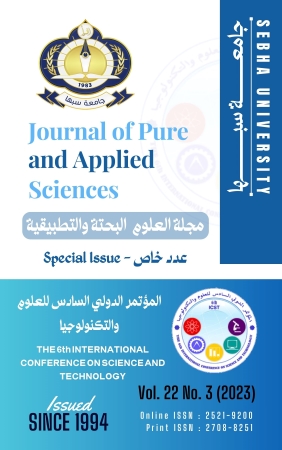Forecasting Short-Term Peak Load Demand in the Libyan Power Grid using Multiple Regression Model
Abstract
The demand for energy, particularly electricity, has been rising rapidly around the world and plays an important role in socio-economic development, especially in developing countries. Electricity load forecasting is a key task in power plant planning, as well as in efficient operation and sustainable growth of modern electricity distribution networks. This is to make Balancing the relationship between electricity demand and supply. The main purpose of this study is to investigate the impact of meteorological factors such as temperature, relative humidity and wind speed on short-term electricity demand forecasts in Libya. A model has been developed by means of multiple regression analysis and trend method techniques. It was found that there is a good correlation between the factors and electricity use. Since the final model exhibits some little deviation, this approach has proven to be helpful for predicting Libya's electricity consumption. The findings are analyzed and discussed in order to offer recommendations for using this approach for forecasting the short-term demand of electricity.
Full text article
Authors
Copyright (c) 2023 Journal of Pure & Applied Sciences

This work is licensed under a Creative Commons Attribution 4.0 International License.
In a brief statement, the rights relate to the publication and distribution of research published in the journal of the University of Sebha where authors who have published their articles in the journal of the university of Sebha should how they can use or distribute their articles. They reserve all their rights to the published works, such as (but not limited to) the following rights:
- Copyright and other property rights related to the article, such as patent rights.
- Research published in the journal of the University of Sebha and used in its future works, including lectures and books, the right to reproduce articles for their own purposes, and the right to self-archive their articles.
- The right to enter a separate article, or for a non-exclusive distribution of their article with an acknowledgment of its initial publication in the journal of Sebha University.
Privacy Statement The names and e-mail addresses entered on the Sabha University Journal site will be used for the aforementioned purposes only and for which they were used.

